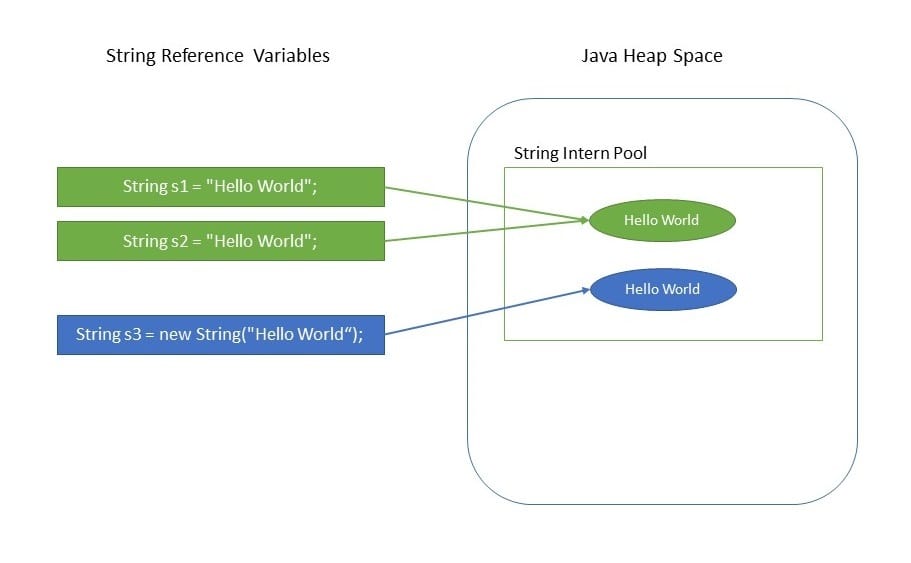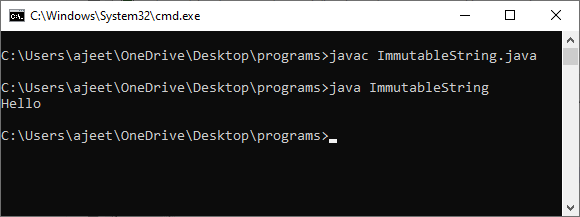Why Are Strings Immutable in Java? Enhancing Code Dependability
Why Are Strings Immutable in Java? Enhancing Code Dependability
Blog Article
What Is Immutable Strings and How It Works
In the world of shows, recognizing the idea of immutable strings is vital for producing durable and protected applications. Immutable strings describe strings that can not be modified after they are developed, ensuring information integrity and predictability within the code. This basic concept plays a vital function in various programs languages and offers an one-of-a-kind method to dealing with data. By discovering the complexities of just how unalterable strings work, one can reveal a world of advantages and possibilities that can boost the high quality and effectiveness of software advancement.
The Fundamentals of Unalterable Strings
Immutable strings, as a basic idea in shows, are personality series that can not be changed as soon as they are developed. This means that when a string is assigned a value, that value can not be altered. In languages like Python and Java, strings are immutable items, leading to numerous effects in terms of memory monitoring and information stability.
One of the crucial benefits of unalterable strings is that they offer a complacency in information adjustment. Considering that the web content of an immutable string can not be changed, it ensures that the initial information continues to be intact, reducing the risk of unintentional changes during program implementation (Why are strings immutable in Java?). This residential or commercial property likewise simplifies debugging procedures, as developers can rely on that when a string is specified, its value will not be accidentally altered
When a new string is developed based on an existing one, rather than changing the initial string, the brand-new value is kept individually. Generally, understanding the essentials of unalterable strings is critical for grasping programming ideas and enhancing code efficiency.
Benefits of Immutable Strings
Building upon the security and efficiency advantages of unalterable strings, their advantages include improving code reliability and simplifying concurrent programs jobs. By being immutable, strings can not be changed after development, which removes the threat of unplanned modifications in the information they store. This inherent immutability ensures that once a string is created, its worth remains constant throughout the program's execution, minimizing the chances of insects caused by unexpected modifications.
In addition, immutable strings add to code dependability by making it much easier to reason concerning the state of a program. Considering that strings can not be altered, designers can trust that a string will certainly always hold the same worth, simplifying debugging and upkeep initiatives. This predictability results in a lot more trustworthy and steady codebases.

Application in Shows Languages
Within numerous programs languages, the unification of immutable strings is a fundamental facet that impacts how information is handled and adjusted within code structures. The application of immutable strings varies across different programs languages, with each language offering its very own devices to sustain this principle.

On the other hand, languages like C and C++ do not have built-in support for unalterable strings. Designers in these languages must manually carry out immutability by implementing guidelines within their code to stop direct modifications to string objects.
Finest Practices for Collaborating With Unalterable Strings
When handling unalterable strings in programming languages like Java and Python, adhering to ideal practices guarantees effective and secure data manipulation. One of the key ideal practices is to make use of StringBuilder or StringBuffer rather of directly adjusting strings, especially when managing comprehensive concatenation operations. These classes give mutable alternatives for string control, aiding to avoid unneeded memory allocations and improving efficiency.
An additional ideal practice is to utilize string interpolation or formatting works offered by the language rather of hands-on concatenation. This not only improves readability yet also aids in protecting against typical pitfalls such as unintentional string modifications. In addition, when functioning with delicate information such as passwords or API tricks, it is essential to prevent storing them as ordinary text in unalterable strings. Utilizing safe and secure storage devices like char arrays or specialized libraries for managing sensitive information assists reduce security dangers connected with unalterable strings.
Real-world Applications and Examples
Checking address out practical implementations of immutable strings in various markets reveals their considerable impact on information stability and system integrity. In the healthcare industry, immutable strings play a crucial role in ensuring the security and discretion of client data. By avoiding unauthorized modifications to delicate details such as clinical records and prescriptions, unalterable strings assist maintain conformity with stringent personal privacy laws like HIPAA.
Banks additionally take advantage of the unalterable nature of strings to improve the safety of customer information and purchase records. Unalterable strings help prevent scams and unapproved changes to monetary details, supplying a durable defense against cyber threats and making sure the count on and self-confidence of customers.

Final Thought
Finest techniques for functioning with immutable strings include avoiding straight alterations and utilizing methods that return brand-new string things. Real-world applications of unalterable strings include data encryption, caching, and string control jobs.
Immutable strings refer to strings that can not be changed after they are developed, ensuring information integrity and predictability within the code. When a brand-new string is developed based on an existing one, rather than changing the initial string, the new worth is stored individually.In languages like Java and Python, strings are immutable by default, suggesting that once a string item is created, its value can not be changed - Why are strings immutable in Java?. Ideal practices for working with immutable strings include preventing direct adjustments and utilizing approaches that return brand-new string things. Real-world applications of unalterable strings consist of data encryption, caching, and string control over here tasks
Report this page